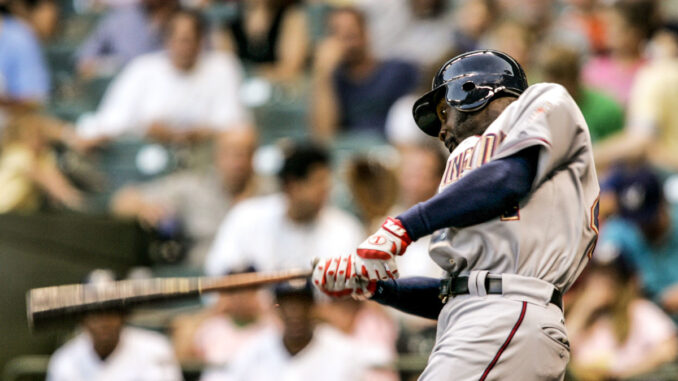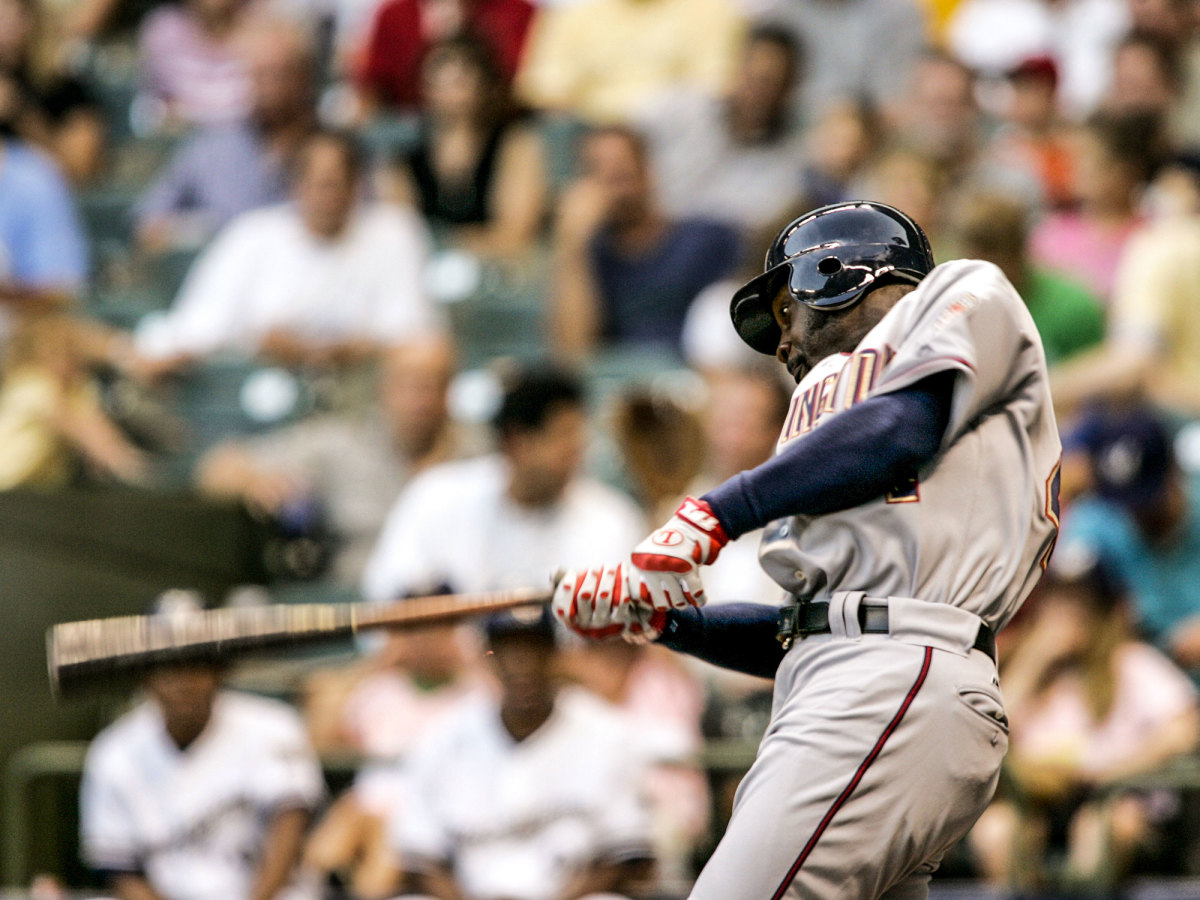
Consider the experience of former All-Star Preston Wilson, who recalls learning country song lyrics and practicing one-liners from ‘Caddyshack,’ enduring racist slurs and watching a teammate fiddle with a noose. Still wondering why the sport is losing Black players?
Preston Wilson read the statement and thought: That took too long, and it didn’t say enough.
Nine days after police officers in Minneapolis killed George Floyd and the Black Lives Matter movement overtook the headlines, Major League Baseball became the last major U.S. professional sports organization to speak out. “Our game has zero tolerance for racism and racial injustice,” its statement read in part. “We will take the necessary time, effort and collaboration to address symptoms of systemic racism, prejudice and injustice, but will be equally as focused on the root of the problem.” Its tweet added, “We want to be better, we need to be better, and this is our promise to do the work.”

The statement “definitely could have been stronger,” says Wilson, a Black former All-Star center fielder, now 45. He was disappointed to see that it did not contain the words police brutality. “When you try to call out something but don’t name it, you’re not really doing anybody any good,” he says. “It’s like when you know something is racist and you hear the reporter say ‘racially charged.’ Until we can say these things, we’re gonna keep spinning our wheels.
Still, the league that annually celebrates Jackie Robinson said it wanted to do the work, so Wilson quoted the tweet and wrote, “Give me a call.” But the commissioner’s office seems too worried about MLB to think about BLM. It has been 44 days, and no one from the league has called Wilson. That’s too bad. He has some ideas about why baseball has lost so much of Black America.
As his Cardinals recorded the final out of the 2006 World Series, Wilson ran in from left field, looking like a grinning embodiment of the game’s—and the country’s—racial progress. His great-grandparents were sharecroppers. His grandparents had to enter restaurants through the back door to be served. His father, Mets and Blue Jays center fielder Mookie Wilson, played 12 years in the majors and won a World Series, all while young Preston watched from up close. Preston became a first-round draft pick who would play 10 years in the big leagues. Now he was celebrating a championship.
Most fans probably did not notice, in the euphoria of the moment, that Wilson was the only Black player on the team. But he felt it every day. His experience in baseball told a story of isolation. His roommate with the Mets, Jason Isringhausen, had never lived with a Black person before. Throughout the minor leagues, Wilson often felt like an exchange student, trying to understand a strange culture. No one around him was familiar with his cultural touchstones. Instead he learned the lyrics to country music he’d never heard before. He practiced one-liners from Caddyshack and Airplane!. In his decade in the majors, he had teammates who came to his defense when fans yelled racist slurs at him. He also had a teammate who called him the n-word. He once observed a white teammate construct a noose in the clubhouse. It didn’t seem to be directed at him, but the teammate paled when he saw Wilson watching. He didn’t want a confrontation. He never brought it up.
According to the Society for American Baseball Research, MLB peaked at 18.7% African American in 1981. Last season, according to USA Today, that figure was 7.7%. Despite its attempts at fostering diversity at the youth level, baseball continues to lose Black athletes to sports such as basketball and football. The ones who stick with baseball, like Wilson, often report an oppressive loneliness.
How did baseball get here? And how do we fix it?
Baseball is an expensive sport: Many play year-round, spending as much as $4,000 to play in the winter. They return to their high school teams more polished—and more likely to get playing time—than the kids who can’t afford the extra coaching. According to the Brookings Institution, the average net worth of a white family in 2016 was $171,000. The average net worth of a Black family was $17,150. That alone puts young Black players at a disadvantage.
And baseball is a sport that, more than any other, rewards repetitions. Those can be hard to get: You can work on your jump shot alone. You can’t practice hitting a curveball unless someone is throwing it. And most often that requires a field, because kids don’t play stickball anymore. The world is getting faster. Baseball is getting slower. Former All-Star right fielder Ken Singleton, who is Black, learned the game with a broom handle just north of the Bronx, slicing line drives over the grocery store across Columbus Avenue. Today’s Ken Singletons are playing basketball in Rucker Park.
So for a Black boy to pursue baseball, he must live in a town where baseball is prominent, often a predominantly white town. Or he must love the game—played more and more by people who don’t look like him—enough to drag a few friends along.
And if he is looking to sports as a way out, baseball is not the best option. The NCAA allows Division I schools to grant 85 football scholarships. Men’s basketball teams get 13. Baseball teams get 11.7 to distribute among their roughly 35 players. Very few players get a full ride. So if you can’t afford to pay your own way to college and you don’t get drafted, you’re out of luck.
“If you love baseball to death, at some point you’re going to have to decide, Is this financially viable for me?” Wilson says.
According to The New York Times, only 4% of NCAA baseball players were Black in 2018. Even many historically Black colleges have trouble filling out their rosters with Black players: At times last year, Bethune-Cookman did not start any.
So the ranks have thinned dramatically by the time players begin to enter the minor leagues. Then the culture shock hits. For everyone.
For more info visit: https://www.si.com/mlb/2020/07/17/preston-wilson-baseball-black-lives-matter

Be the first to comment